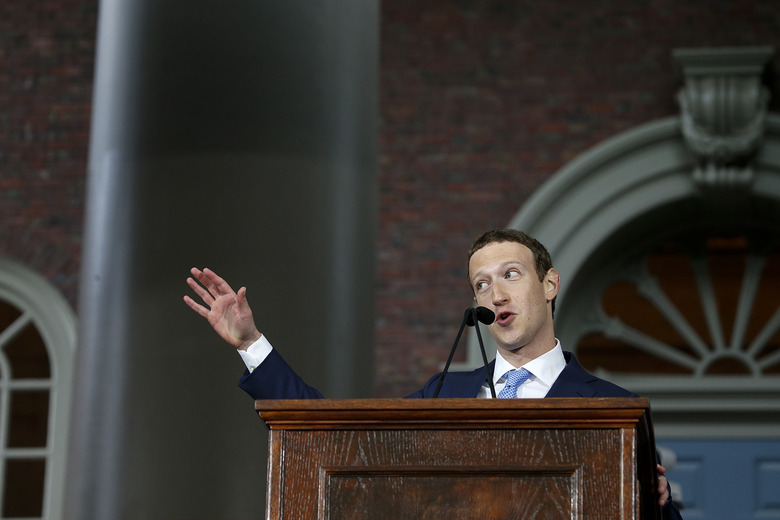I, Too, Am A 'Power User Of The Internet' - And That's Not Enough To Protect My Privacy
Hello, my name is Chris, and I have a problem. I am a "power user of the internet," and I finally know what to call it, thanks to the brave sacrifice of Facebook founder Mark Zuckerberg. But just because Zuckerberg coined a catchy turn of phrase, it doesn't help address the problem that Facebook is currently facing: None of its users, from the most power-usery to the most inept, have any real idea how to stop their data being scraped.
During a conference call yesterday, Slate's Will Oremus asked Facebook's CEO what means does he use to protect himself online, and whether he would have signed up for a quiz app like the one used by Cambridge Analytica to steal personal data for up to 87 million of people.
Zuckerberg was quick to reply that he uses a lot of apps, although he doesn't know if he uses that one specifically. That's when he added "I am a power user of the internet here." That's surely the kind of response that will be forever remembered.
Because, let's face it, many people are power users of the internet. You don't have to be the most powerful person at Facebook, or even to work in tech, to be able to describe yourself as a power user of the internet.
What's important to note is that Zuckerberg was asked what he does to protect his privacy online, aside from taping the camera on his laptop. In addition to the remark above, he gave exactly the kind of response you'd expect from a tech-savvy person.
In order to protect privacy, I would just advise that people follow best practices around security: turn on two-factor authentication, change passwords regularly, don't have your password recovery responses be information that you made publicly available somewhere. All the basic practices, and then just look out and understand that most attacks are going to be social engineering, and not necessarily people trying to break into security systems.
That's very power-user-of-the-internet of you to say.
However, just because one is a power user of the internet and knows the best practices doesn't mean he or she will be able to protect their privacy when services like Facebook decide to share their data without their knowledge. I'm pretty sure that among the up to 87 million people whose data may have been swiped by Cambridge Analytica, plenty of them are also power users of the internet who were helpless when it comes to guarding their Facebook data.
Going forward, however, Facebook does seem committed to actually giving users control over their privacy.
